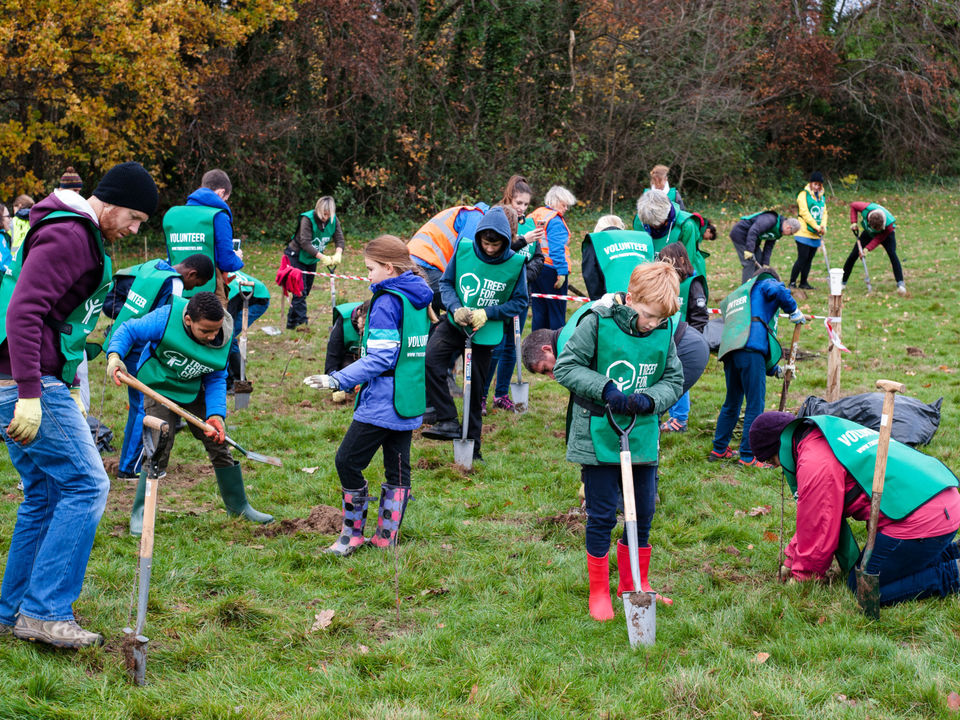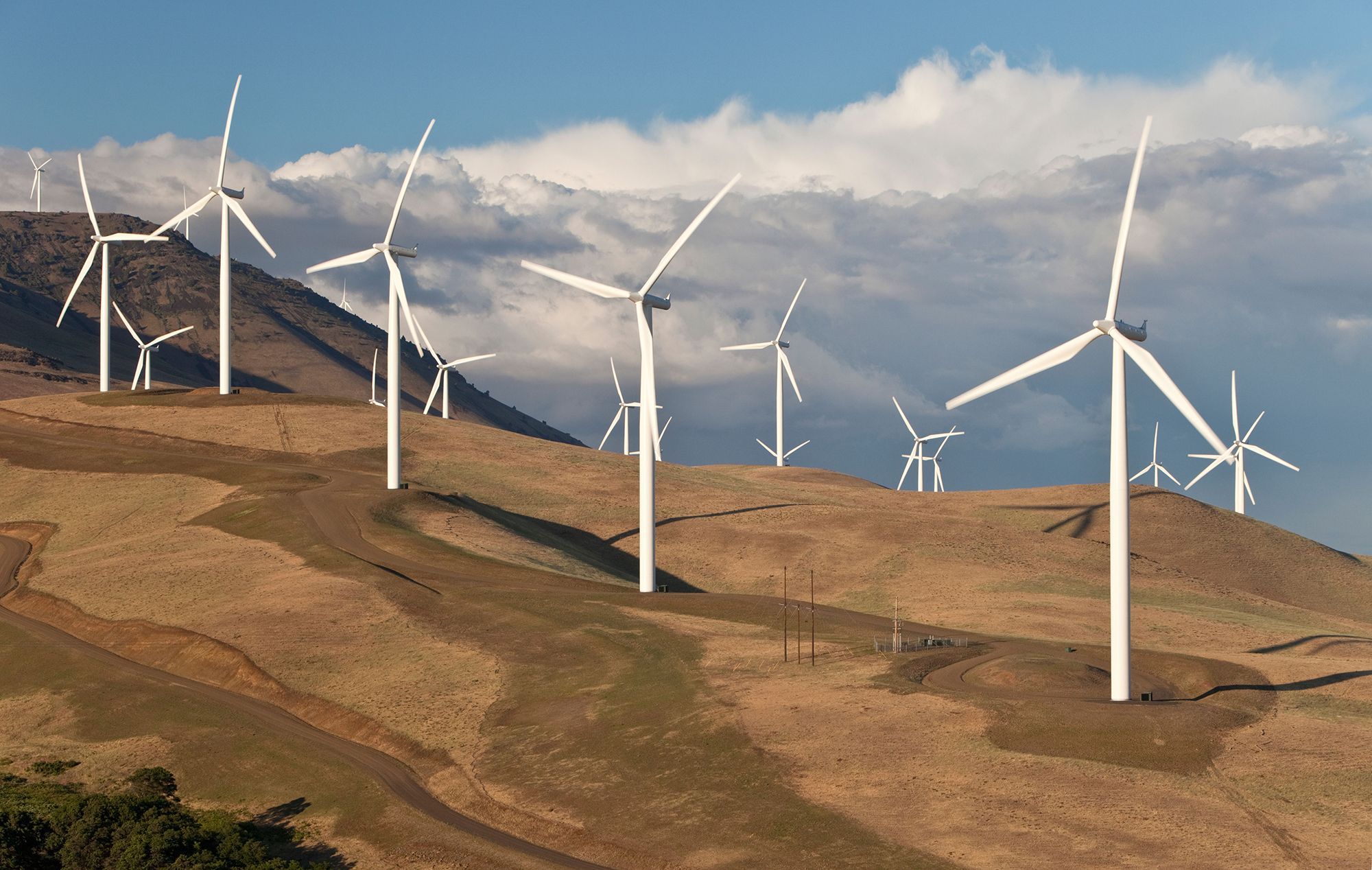Between the 31st and 12th of November, the world's most influential politicians, delegates, and tycoons met for the 26th time. The purpose? To agree on our future. It presented both opportunities and threats, and whether you felt optimistic or pessimistic by the end, what's blatantly clear is A LOT needs to be done. Now that the dust has settled a little and we've had time to digest, we want to recap the events and most importantly, see what we can do to support the goals.
It all started with David Attenborough
“We need to rewrite our story ... We are after all the greatest problem solvers to have ever existed on earth. We now understand this problem. We know how to stop the number rising and put it in reverse... If working apart we are a force powerful enough to destabilise our planet, surely working together, we are powerful enough to save it.” - David Attenborough
This is an outtake of David's opening speech at COP26. If the words sent a little shiver down your spine, you weren't alone. For us, it was one of the most poignant moments of the conference. Mainly because he managed to tell the story of climate change (and humanity to some extent) with all its desperate urgency, but without leaving us feeling totally hopeless at the end. And all in a mere 7 minutes too.
As you just heard, a number was the foundation of his speech - 414. This is the concentration of carbon in our atmosphere in parts per million, whose changing state is the cause of our climate changing too.
Before we go any further, let's just rewind a little and recap what the COP events even are, before moving on to the goals and what we can do.
What is COP26?
The abbreviation COP26 stands for Conference of the Parties. The 26, simply because it was the 26th time countries have come together. We're sure you spotted that this year the event was held on our home soil in Glasgow too.
In a nutshell, the purpose of COP26 is to negotiate, compromise, and come to an agreement on how to reduce greenhouse gas emissions, and reduce the impacts of climate change. So essentially, by the end of it, all attending countries should have set goals they're striving for within an agreed, reasonable and effective timeframe.

What were the COP26 goals?
Four key goals were set during COP26:
- Secure global net-zero by mid-century and keep warming to 1.5 degrees Celsius
- Adapt to protect communities and natural habitats, including assisting those countries most vulnerable to climate change
- Mobilise finance (essentially meaning we need more mulla)
- Work together and be totally inclusive to deliver the above by creating a Paris Rulebook
Whilst there has been a large amount of discourse about the success of COP26, whether the goals are enough, and whether we can even meet the goals set, what we do know is that we're not going to achieve any of them just by talking about them. So, inspired by Dattenborough, let's see what we can all do to help!
"We need to not just talk about what we can do, we need to do what we can"
Of course, COP26 is a rather top-down approach, and it's easy to think "well, it's up to the government now". However, without being the Prime Minister, there are many small steps we can take to support positive outcomes from COP. Here are 5 of our ideas:
1. Read-up
Knowledge is power! Whilst reading might not bring about change itself, without knowing what our own countries targets are, it's hard to understand how we can support them. So congrats, you're already completing the first one right now! The Gov website has also released plenty of information like our path to net zero and our pledge to halt and reverse deforestation. From reading this we already have another idea, which is...
2. Support planting trees
If you can plant your own trees, fab! If not, there are plenty of other ways you can still support, like writing to your local authority about the Treescapes Fund. This is a Government fund purposed at growing trees everywhere from neglected spaces to parklands. You can also donate to or volunteer for charities that plant trees, like Trees for Cities who we work with.

3. Reduce our carbon footprint
With over 1 billion people on this planet, it's easy to think 'how can anything I do really make a difference to carbon-levels?". This is why the fourth goal of coming together is so important, not just at an international level but individual level too. Through everything from our daily routine to our buying decisions, we can influence brands, markets, and governments. As a business ourselves we feel this every day, with ideas and feedback from customers constantly encouraging us to do better. If you're already a Scrumbler you'll know we've made a number of changes over the past 3 years including:
- evolving to use fully recyclable dry food packaging
- shifting to 100% manufacturing within the UK to reduce our food miles
- working with carbon-neutral DPD
- developing a range of tasty plant-based dog treats, our dental dog treats Gnashers, and softies training treats
- our range of vegetarian dog food
There's lots more we're working on to minimise our impact and continue to support 1% for the planet, so please, if you have any ideas for us, never hesitate in dropping us a line at hello@scrumbles.co.uk
Count Us In is also working to unify our individual efforts of reducing our carbon pollution with their 16 steps approach. These steps have been developed with UN Environment Programme experts, so we don't have to question which work and don't either, as they all count. They are: fly less, drive electric, insulate your home, wear clothes to last, tell your politicians, walk & cycle more, cut food waste, green your money, repair & re-use, dial down your heating, speak up at work to drive change at a bigger scale, talk to friends, eat more planets, eat seasonal, get some solar, and switch your energy. More on this last one next...
4. Switch our energy providor
This is one of the easiest peasiest ones that you can do from your sofa right now, and might even save you a few bob! According to Which the top three overall renewable electricity providers are: Good Energy, GEUK, and Ecotricity. Before making a hasty change please do some thorough research though, as many energy companies are currently at risk of collapsing if they haven't already (e.g Bulb).
Don't forget to also explore the new greener options emerging for gas and oil too!

5. Encourage your employer to drive change
There are many different organisations and initiatives that recognise and commit businesses to drive change. By encouraging your company to join one or more, you'll be helping drive change at a larger scale. Some brilliant ones that exist include 1% For The Planet, which commits companies to donate 1% of all their sales each year to environmental causes around the globe. And finally, Race To Zero, which commits and helps businesses to achieve net zero by 2050.
The digest
Hopefully, you're now feeling like we did after watching David's speech; concerned but ready to drive some real action. Whichever ideas you decide to adopt, every single one will make a difference. We'll be able to see the proof in 2050 when we'll know if we've achieved our target of net-zero. So see you then [presses time-warping device)! (just kidding hehe)


